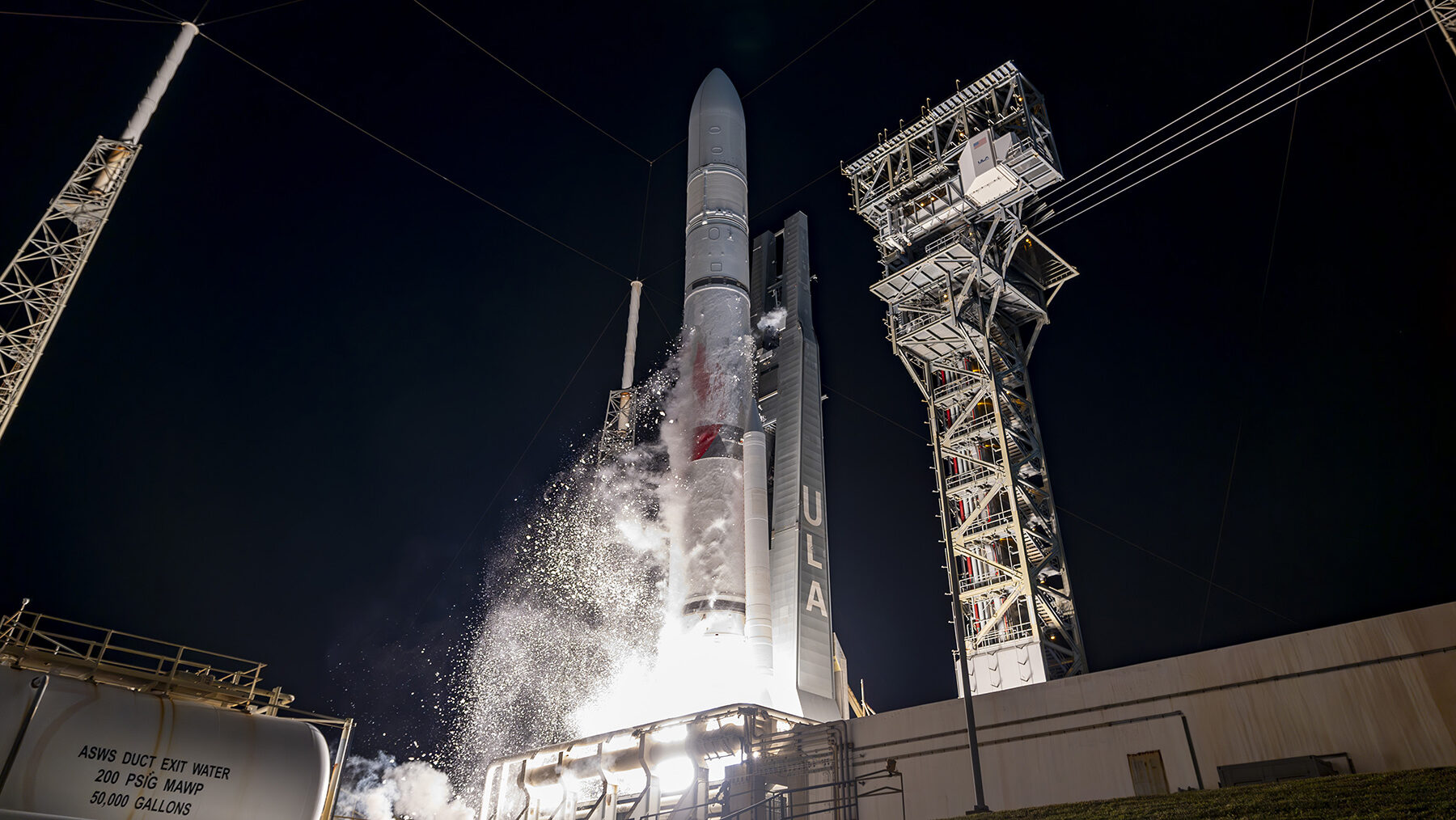
(Photo: United Launch Alliance)
SIMI VALLEY, Calif. — United Launch Alliance (ULA) expects to gain Space Force certification for national security payloads within a few months, company CEO Tory Bruno told Breaking Defense in a recent interview.
Speaking in California, Bruno said he expects certification “momentarily,” though he noted that “’momentarily,’ in our world, that means this month, next month, next few months.”
He added that no further testing of the Vulcan Centaur will be needed to meet certification, saying the company has met all the requirements from the Pentagon.
Two well-executed launches are requisite to achieve certification for carrying payloads under the Space Force’s National Security Space Launch (NSSL) program. A January launch was deemed a success, but there was an anomaly during the second flight in October with one of Vulcan’s solid rocket boosters that currently is under investigation.
Bruno also expressed confidence that ULA would meet two manifested launches scheduled for early next year for NSSL. Overall, he said, the company has 20 launches manifested for 2025, with 16 Vulcan rockets stored away for use, and no worries that production won’t be able to keep up with demand.
On the propulsion front, Bruno said the company has received 12 BE-4 engines, of which four have flown. Current production on those engines is one per week, with two needed to launch the Vulcan, the ULA boss said. While Bruno said he would love to one day have production at a higher rate, he stressed that the current pace is enough for ULA’s current needs. (The executive added that he has over 40 solid rocket boosters stored away.)
Looking forward, Bruno said he hopes to have 20-30 Vulcan launches a year, about “half” of which would be for national security. He noted that “When I got to ULA, I think we were less than a quarter commercial, and the rest was government, and now it’s nicely balanced, half and half between the two markets…. It’s healthier.”
Bruno declined to comment on reports that ULA is on the market. And while ULA is a partnership between Lockheed Martin and Boeing, the executive said that the current troubles at Boeing — including plans to lay off 10 percent of the workforce — are not impacting the rocket firm, which operates independently.
ULA’s largest competitor for military space launch is the Elon Musk-backed SpaceX, and the two companies have a rivalry dating back a decade to when Musk was the upstart trying to break what he described as a “monopoly” on Pentagon launches. Now, Musk is in the lead, and is poised to have an outsized impact on the incoming Trump administration, both as an unofficial advisor and through his role with the DOGE government efficiency effort.
Asked about concerns that Musk could influence ULA’s business prospects, Bruno said that “It is great that the administration has a real focus on space, because I think it’s vitally important to our national security, and I think that that [Musk] will help with that, and help keep a focus there.
“I don’t know what he will do. I’ll just reiterate that this is not the time when it would be healthy in the market or good for the government to have a monopoly in any of this stuff. There’s plenty of work. There’s multiple providers. That’s the best place for the country to be. I hope he understands that as well.”
Correction 12/9/24 at 12:57 pm ET: The original version of this story misstated the number of BE-4 engines currently held by ULA. The story has been updated to reflect the correct number.